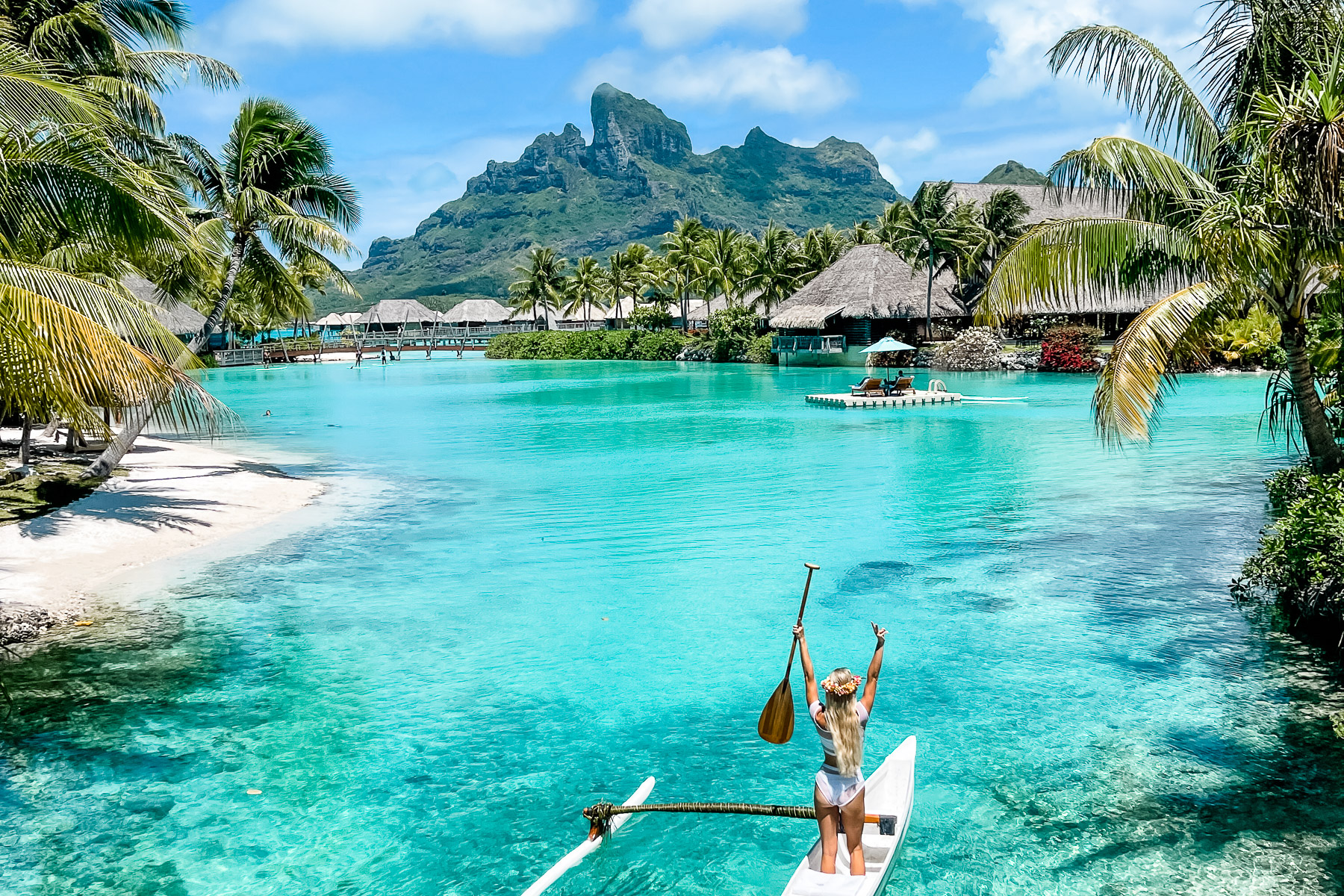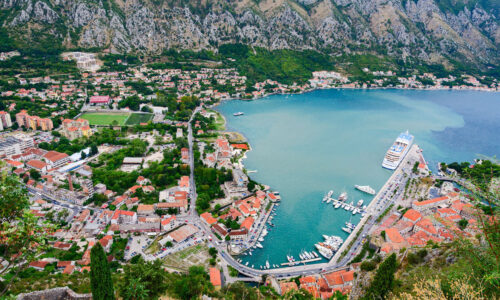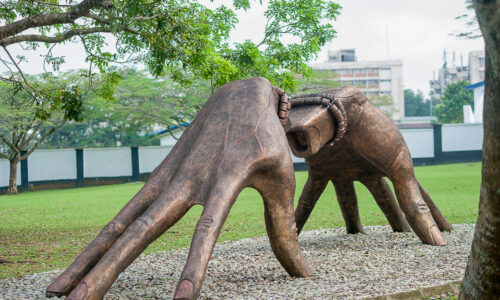- Judith Akatugba
- 0 Comments
- 791 Views
One of the Society Islands in French Polynesia, the South Pacific island of Bora Bora is a tropical paradise. Bora Bora, which is surrounded by coral reefs and rises to an extinct volcano in the center, is well-known for its turquoise waters, white sand beaches, stunning scenery, and overwater bungalow resorts.
In Bora Bora, the average annual temperature is in the low to mid-80s. The best months to visit Bora Bora are April through October, when the weather is ideal for outdoor activities and there is less humidity. Choose April or May for the best weather and fewer crowds—this can be the busiest period, especially in the summer—says Emmanuel Richardet, general manager of The St. Regis Bora Bora Resort, in an interview with Travel + Leisure.
Read Also: EU Legislators Ratify Political Accord Concerning AI Regulations
While the wet season (December through March) is hotter and more humid, the dry season (May through October) provides low humidity and minimal rain. The tourism seasons in Bora Bora are broken down as follows:
• High Season: May through October
• Shoulder Season: April and November
• Low Season: December through March
Prior to reserving an overwater bungalow, take into account the following factors when making travel plans to Bora Bora.
Best Time to Visit for Smaller Crowds
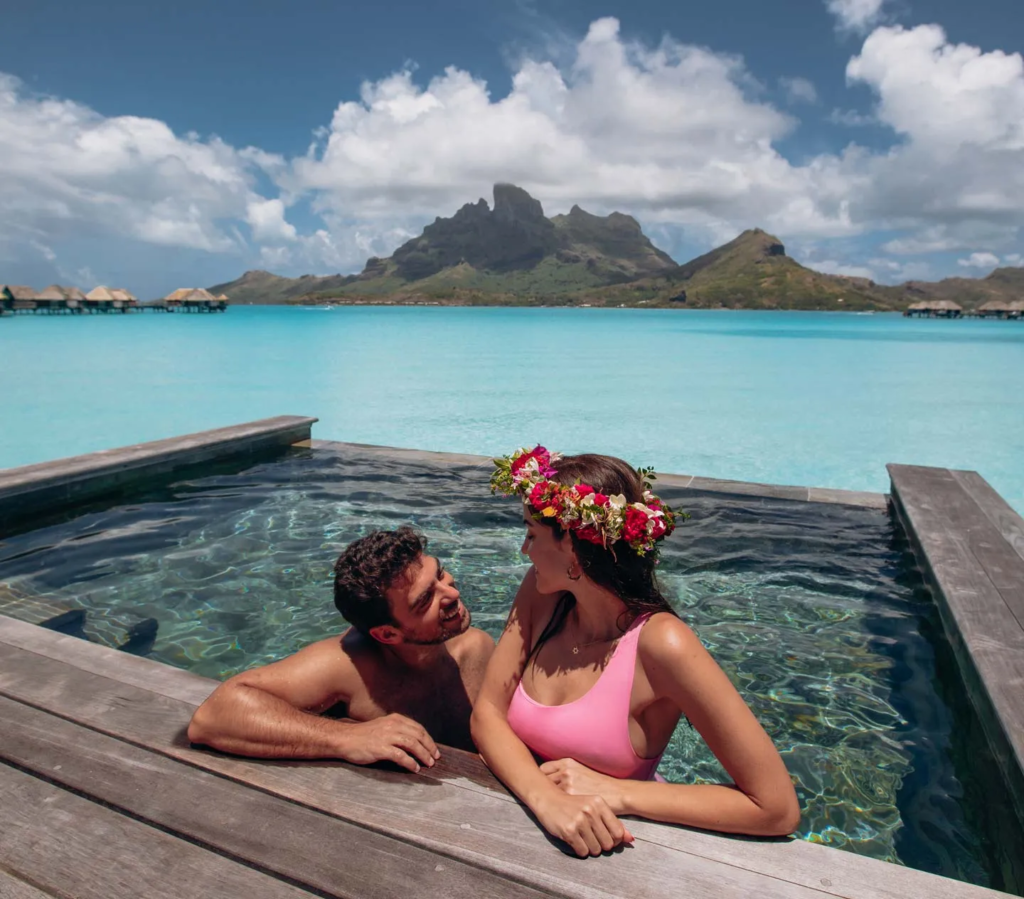
Those who go in search of bright, dry weather are less likely to visit the wet, humid months of December by March. It’s possible for visitors to feel like they have the island to themselves during this time. The exception is the Christmas season, which is always a popular time to visit warm-weather locations as people come to unwind and celebrate the holidays before the new year.
In the off-peak months, there are less tourists, so travelers may locate quiet beaches, have romantic dinners, and explore new things. “Guests can unwind in our spa or take a French Polynesian cooking class on a rainy afternoon,” Richardet stated. “There are breathtaking rainbow views of Mount Otemanu when the weather breaks.”
Best Time to Visit for Good Weather

Throughout the dry months of May through October, there is low humidity and pleasant weather with lows in the 70s and mid-80s. This is the ideal time of year for island treks and excursions to nearby settlements. You can still feel alone in an overwater cottage with your own outdoor space and the option to swim from your deck, even though the warm season draws more guests.
Jet skiing, sailing, boating, diving, and snorkeling are all popular pastimes at this time. Divers and snorkelers seeking breathtaking views beneath the surface are drawn to Bora Bora’s coral formations and marine life, which include sea turtles, a variety of sharks, eagle rays, bat rays, manta rays, leopard rays, and tropical fish.
Best Time to Visit for Lower Prices
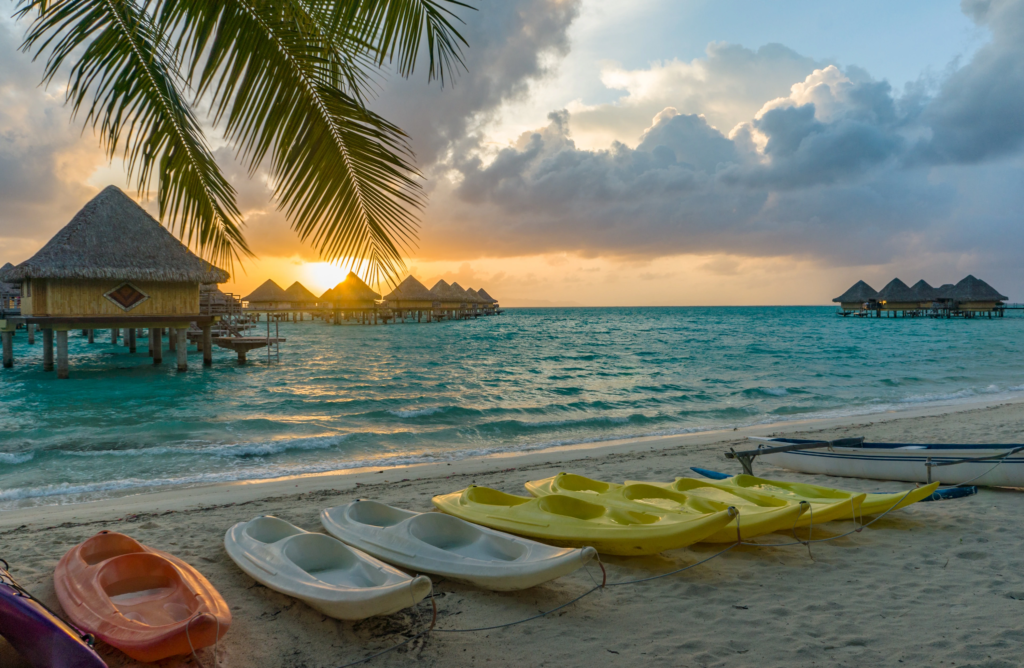
Travelers with a sense of financial discipline know to take their holidays during the shoulder or low season. The wet months usually have less appeal to tourists in a tropical resort like Bora Bora, where there are very distinct dry and rainy seasons. Resorts, airlines, and tour operators advertise tourism during these periods with special offers and discounts in an effort to draw tourists.
Budget-conscious travelers should concentrate on visiting Bora Bora during the low season, which runs from December through March. After the holidays, January, February, and March usually have the greatest deals.
The rainiest month is January, but there is a bright side to it. According to Richardet, T+L, “the low season is a great time to experience Bora Bora like a local and [be] immersed in the region’s rich culture.” “Our cultural ambassador, Maui, instructs traditional Polynesian flower crown weaving and pareo making while sharing stories passed down by his ancestors.”
Off-season pricing are combined with a high probability of excellent weather during the shoulder months of April and November. The dry season ends in April, and the rainy season, which usually begins in December, begins in November.
Best Time to Visit for Whale Watching

Between July and November, humpback whales travel north from the area around Antarctica to the balmy waters of French Polynesia. They give birth, raise their young, and play in the waters surrounding Bora Bora at that period. You may also observe dolphins, rorquals, and orcas in addition to humpbacks.
Visitors can observe whales while snorkeling or diving, and there are organized whale-watching boat tours available. Visitors can hear the sounds of whales interacting with one another thanks to the hydrophones installed on many whale-watching boats.
The whales can frequently be observed from land since they swim in the lagoons near Bora Bora, particularly when they breach. When the whale breaches, it raises its body and lets go of the water almost completely, making a loud splash.
Best Time to Visit for Cultural Festivals

July is a month-long celebration of French Polynesian culture, with temperatures in the mid 80s and practically perfect weather during the peak of the dry season. Heiva I Bora Bora, which takes place mostly in Vaitape, includes athletic competition along with music, dancing, singing, painting, and traditional entertainment. There’s an outrigger canoe race, a javelin throwing competition, and a climbing competition for coconut trees.
Flowers are used to decorate stores, local handicrafts are on show, and traditional meals are provided. Furthermore, hotels and resorts provide exclusive programs to enhance the celebrations.
Best Time to Visit for Diving, Snorkeling, and Sailing
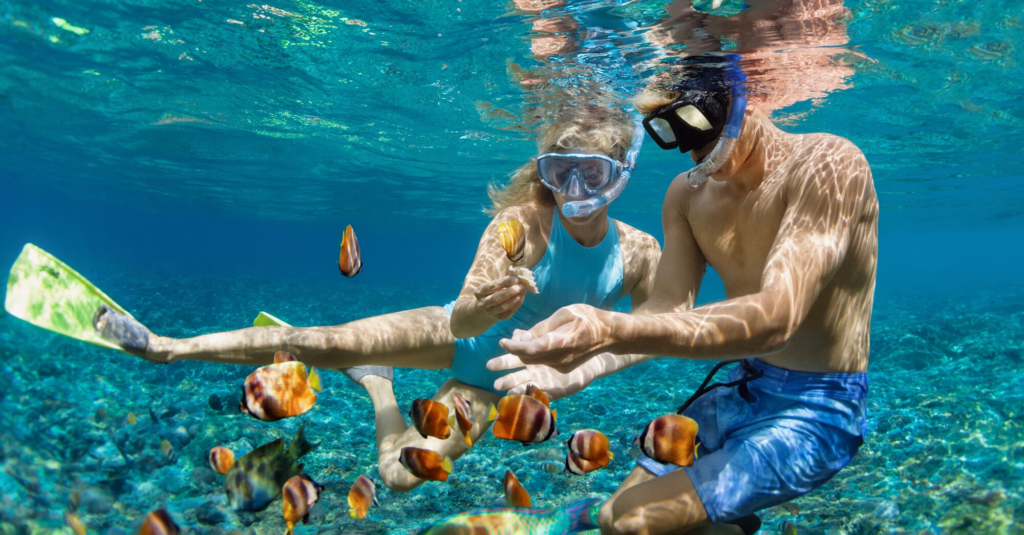
The weather is clear and sunny throughout May and June. This is the best time of year to explore the marine life and coral reefs on a diving excursion or snorkeling boat tour because the waters are calm and warm, with temperatures in the low 80s.
The weather is pleasant and ideal for sailing and kiteboarding thanks to the mild trade breezes. The ensuing months usually see an increase in winds, making viewing conditions less clear.
Best Time to Visit for Hiking

The best months to explore Bora Bora’s hiking trails are June, July, and August since they are dry, have reduced humidity, and have breezes to help you cool off after an intense workout. Hiking with a guide or with a small group is recommended for safety and to learn about different sites of interest from locals.
The most well-liked hike takes around three hours of moderate exertion and leads to the Valley of the Kings. The hike to Mount Otemanu is harder. The majority of visitors are happy to see Mount Otemanu’s breathtaking scenery from a distance, although ardent hikers might want to come up close. They are rewarded with breathtaking vistas of the lagoons, verdant surroundings, and motus (islands) of Bora Bora.
At the end of July, serious hikers from all over the world travel to Bora Bora to take part in the demanding Raid Anei Bora Bora, a competitive hiking event that winds through jungle terrain.
Worst Time to Visit
If you’re a sun worshipper, January is definitely the worst month to visit Bora Bora because it’s the wettest month. This hot, muggy month usually brings more than 12 inches of rain, so you won’t have many days to spend in the sun. Nonetheless, some tourists may appreciate the chance to unwind and enjoy the rain while reading a book or listening to music in their opulent yet inexpensive overwater bungalow. In all honesty, there’s never a bad moment to visit Bora Bora.


